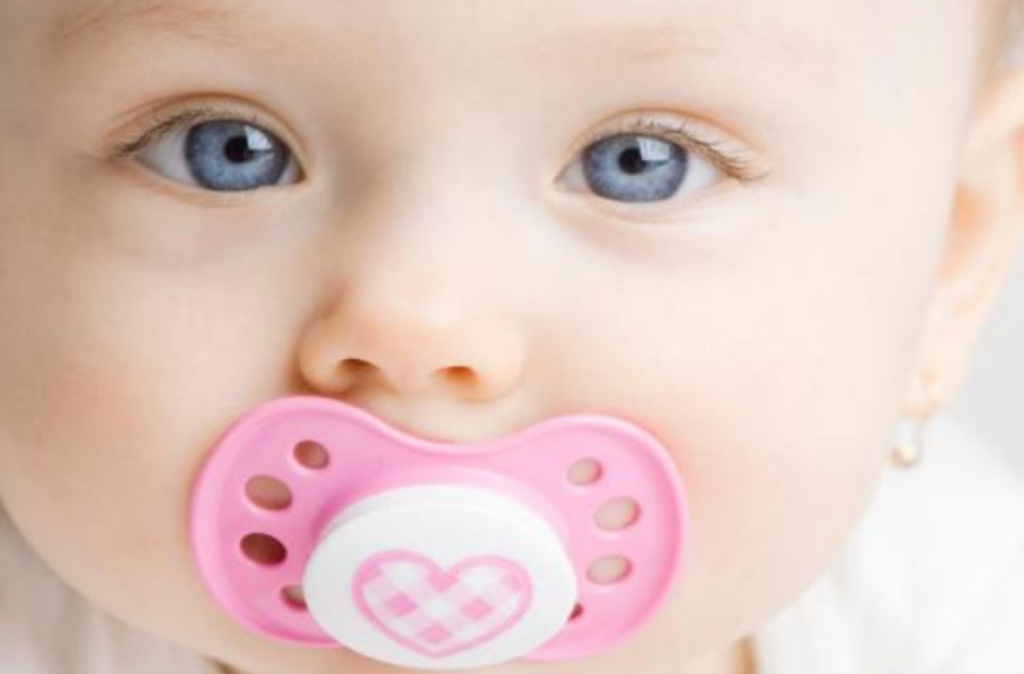Parents want nothing more than to be able to comfort their baby whenever they burst out in tears. In most cases, pacifiers serve as a lifesaver for parents. However, there are also parents who prefer not to use it. If you’re still contemplating whether to use the pacifier or not, here are the advantages and disadvantages of using pacifiers to help you make your decision.
Advantages of pacifier
Babies have a natural reflex to suck, which is what makes them so good at breastfeeding. They have the tendency to find something soft to latch onto before they begin sucking away. Some babies have a constant desire to suck and this is where pacifiers come in.
The action seems to calm babies down and sucking on a pacifier can help them settle down. This non-nutritive item can replace the breast between feedings to soothe the babies. A pacifier can teach babies to comfort themselves without needing their parents to feed, sing or rock them to sleep.
Letting your baby use a pacifier between their sleep and naps can reduce the risk of sudden infant death syndrome (SIDS). The pacifier is also useful for stabilising ear pressure, for example, when you’re on a flight. They can also help in distracting your baby during shots, blood tests or more.
Disadvantages of pacifier
Pacifier use is unfortunately linked to higher rates of middle ear infections. It may increase the risk of middle ear infections in babies if usage begins before the baby is 6 months old. Your baby will also face higher chances of dental problems later in childhood if they continue to use pacifiers even after the ages of 4 to 5 years old.
It is recommended for babies to only start the usage of pacifiers when they’re 3 or 4 weeks old when breastfeeding is solidified. Most babies can recognise the difference of sucking on a pacifier and a breast by this time. If babies start earlier than that, the confusion may cause them frustration and they might give up on breastfeeding.
Some babies grow too dependent on pacifiers and don’t know how to function without it. They can be very upset when their pacifiers are misplaced or lost. It can be as bad as needing it in order to sleep. If your baby is still early in their infancy, they won’t be able to find their pacifier and put it back into their mouth when it falls out. This means you’ll constantly have to get up in the middle of the night.
Managing pacifier use
- Let your baby guide the decision
It’s important to keep in mind that not all babies like pacifiers. If your baby takes it right away, that’s fine but if your baby resists it, never force it on them. Respect the preference and let it go.
- Offer pacifier between feedings
Do this when you’re aware that your baby is not hungry.
- Don’t use a pacifier to delay feedings
Never use the pacifier to delay feeding time or let it act as a substitute for your attention. Use the item only when necessary.
- Let your baby have it during nap or bedtime
It helps your baby fall asleep easier but if it falls out, don’t put it back in. It’s better to prevent your baby from heavily relying on it while you still can. When your baby is being fussy, try other soothing methods like singing, rocking or cuddling before resulting to the use of a pacifier.
- Don’t tie pacifier around baby’s neck or crib
This is very dangerous as your baby is at risk of being strangled by the string or cord. It is safer to attach the pacifier to your baby’s clothes with a clip that’s made specifically for this task.
- Looking after the pacifier
Be sure to select a safe, correct and suitable pacifier for your baby. Always keep it clean by rinsing it with warm water. It’s extremely important to replace it once it shows the slightest signs of crack or wear.
- Never dip the pacifier in any sweet substance
The pacifier should never go near any sweet drinks or food as it can cause tooth decay. Parents should also never put the pacifier into your mouth to “clean” it as your saliva contains bacteria that can cause cavities in your baby’s teeth.
For more parenting tricks or tips, please visit Mamahood.com.sg.
